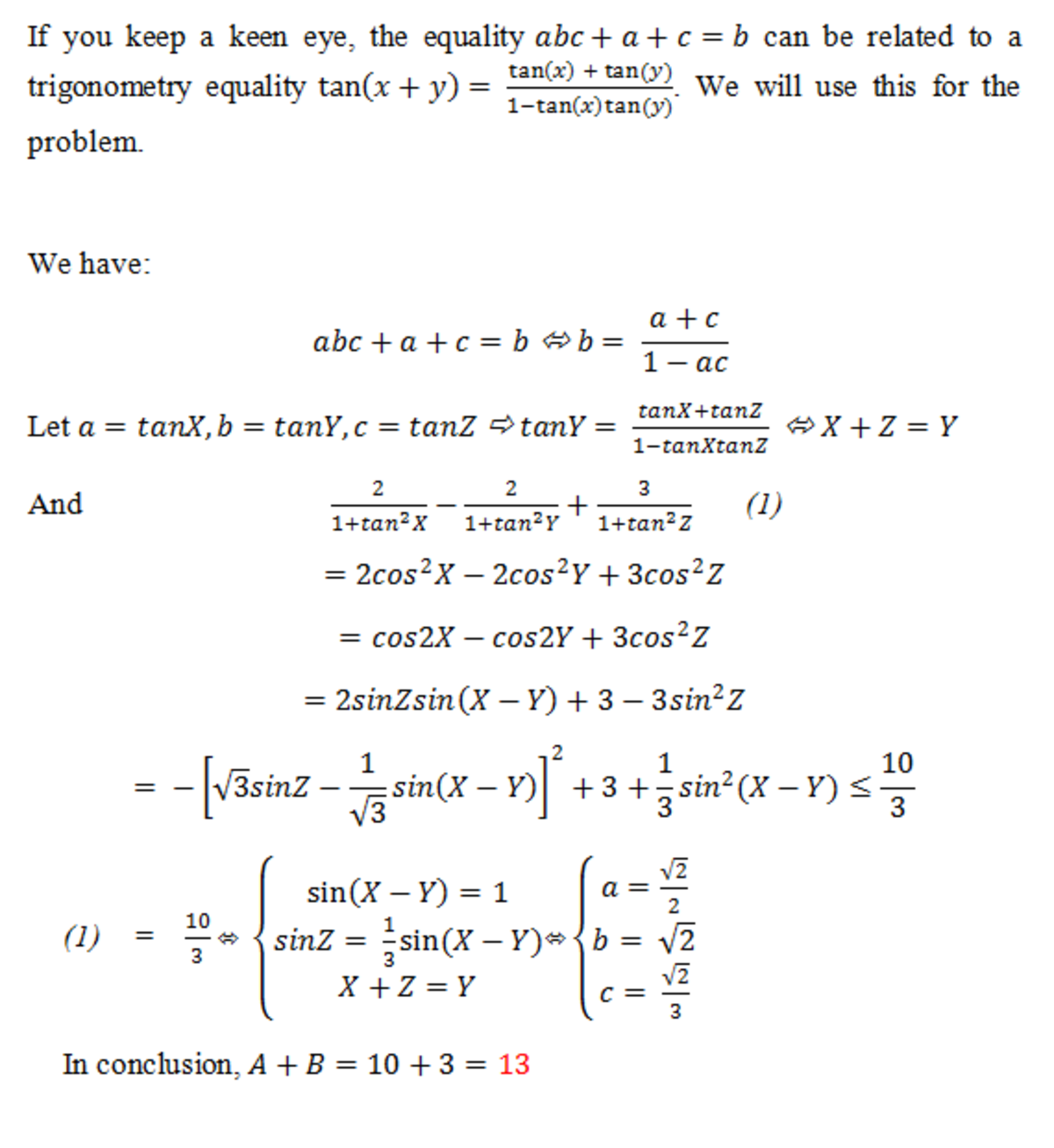Trigonometry Related
a 2 + 1 2 − b 2 + 1 2 + c 2 + 1 3
Given that a , b and c are positive real numbers satisfying a b c + a + c = b . If the maximum value of the expression above can be expressed as B A for coprime positive integers A and B , find the value of A + B .
The answer is 13.
This section requires Javascript.
You are seeing this because something didn't load right. We suggest you, (a) try
refreshing the page, (b) enabling javascript if it is disabled on your browser and,
finally, (c)
loading the
non-javascript version of this page
. We're sorry about the hassle.
2 solutions
Cool problem ! Care to share some more of this type ?
Log in to reply
Thank you! I hope I will find a similar kind of problem very soon!
same solution
Log in to reply
I thought most people would do the conventional methods but bravo to you *
I think something is wrong. At first I didn't know what, but after re-reading it, I suspect you meant sin ( X + Y ) in the last few lines rather than sin ( X − Y ) .
But aside from that minor issue, this is a very good problem and solution.
You can also use Lagrange Multipliers to solve this problem :)
What's that ?
Log in to reply
In response to Raven Herd: It is the most popular method to calculate extrema for functions with more arguments if there are restrictions for them given by additional conditions. For information please consult the internet! ;-)
Log in to reply
I did but I didn't get it from wikipedia can you tell me from where I can learn it ? Thanks.
I don't know how to write Latex so I will capture my DOCUMENT.